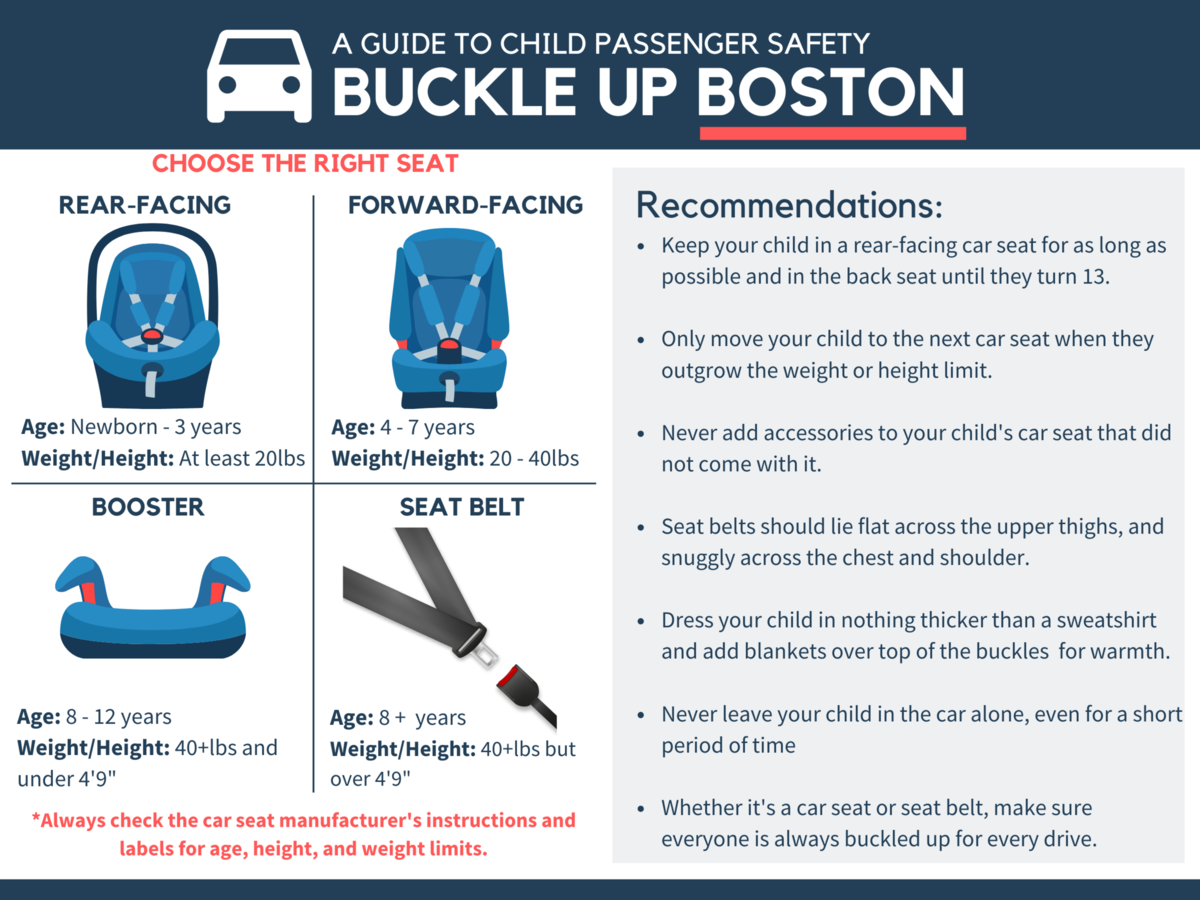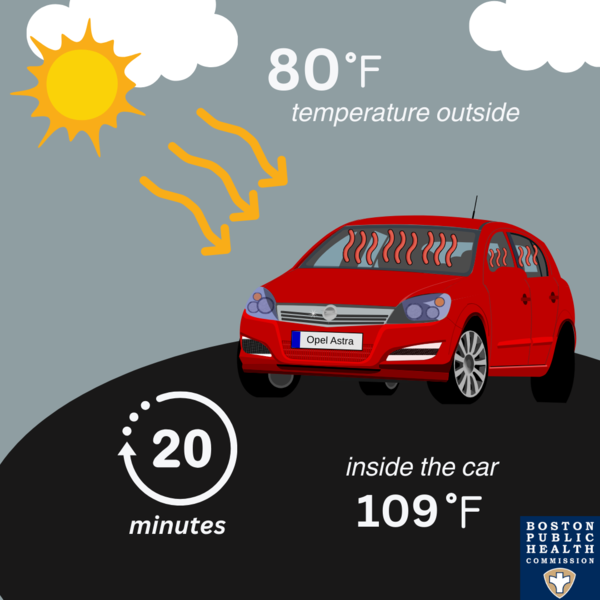Buckle Up Boston
Keep your child safe on every car ride.
Why Do Car Seats Matter?
Car crashes are one of the leading causes of death in children under 14. Many of these deaths are preventable. According to the National Institute of Health, securing children into properly installed car seats reduces their fatality rates by more than 70%.
Boston EMS believes that 9 out of 10 car seats are incorrectly installed in resident vehicles. As one of the US cities with the highest collision rates it is vital that children have properly fitted car seats. The best way to ensure that your child is safe inside a car is to follow the manufacturer's installation instructions, watch the Safe Kids car seat videos, and create an appointment with one of the several healthcare facilities that offer free car seat checks.
To Schedule a Car seat installation reach out to our partners:
- Boston Children's Hospital's Child Passenger Safety Program offers car seat installation by certified safety technicians. The program also provides car seats and booster seats for income-eligible families that receive care at their facilities. To learn for about receiving a car seat or request an installation call (617) 355-7332.
- Call Boston Medical Center at (617) 414-8007 to schedule a car seat installation.
- Boston EMS can help make sure you have the right child safety seat for your child and that it is properly installed. Call us 617-343-6891 or email communityinitiatives@bostonems.org to make your appointment.
Local fittings are limited, but your child's car seat manufacturer is always available to help install a booster or car seat. Many manufacturers provide virtual guidance. Visit the Juvenile Products Manufacturers Association for more information.
Never Leave a child in a vehicle unattended
Child Passenger Safety Recommendations
Buckle-up for every drive.
- Most convertible car seats have height and weight limits that allow children to ride rear-facing longer.
- Keep your child in a rear-facing car seat until they're 3 and in the back seat until they turn 13.
- Dress your child in nothing thicker than a sweatshirt in their car seat. Place your child's coat or blanket over them for warmth.
- Only move your child to the next car seat when they outgrow the weight or height limit.
- Never add accessories to your child's car seat that did not come with it.
-
Seat belts should lie flat across the upper thighs, and snuggly across the chest and shoulder.
- Never leave your child in the car alone, even for a short period of time.
- Lead by example and always wear your seat belt.
MA Sate Requirements
- Children must be properly secured in a federally approved child passenger restraint until 8 years old OR over 57 inches tall.
- Children ages 8 through 12 must wear a properly fastened safety belt.
- A police officer can stop your vehicle if a child age 12 or under is not properly restrained.
- Children under the age of 13 must stay in the back seat of a moving vehicle.
- Visit Massachusetts Car Seat Safety for more information
Seasonal Safety Information
Heatstroke
Heatstroke begins when your internal body temperature reaches 104 degrees. A child left in a car can reach an internal temperature of 104 degrees 3-5 times faster than an adult. The inside temperature of a car can increase by 20 degrees in 20 minutes and reach a deadly rate within an hour. A cracked window will not slow the heating process enough to prevent heatstroke nor will parking in the shade. To prevent heatstroke or death, always take your child with you when exiting your car, even if it's "just for a second".
Hypothermia
Hypothermia begins when your body loses heat faster than your body can create heat to keep you warm. Children lose heat much faster than adults and are at higher risk of hypothermia. Signs of hypothermia include: cold skin, shivering, low energy, drowsiness, confusion, slurred speech, exhaustion, and poor coordination.
Turning on the heat can reduce the risk of hypothermia, especially in the winter. Make sure to dress your children in warm clothing and apply anything thicker than a sweatshirt over top of the buckles. Keeps kids, especially young ones inside while warming the car in winter and NEVER leave them alone in the car, even if the heat is on.
Remember, Heat-Related Car Deaths Happen in Every Season and Weather Condition.
Car Seat Inspections & Installations
Schedule a free car seat inspection with a Child Passenger Safety technician.
Boston Children’s Hospital: (617) 355-7332
Boston Medical Center: (617) 414-8007
Boston EMS: 617-343-6891
Child Passenger Seat Videos
Rear-facing car seat installation
Learn how to install your rear-facing car seat
Front-facing car seat installation
Watch this video to learn how to install a forward-facing car seat
Booster car seat installation
This video explains how to install your booster car seat
Moving from a booster car seat to a seat belt
Is it time to switch from a booster car seat to a seat belt? Watch here





